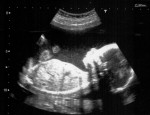–
(The Judgment of Madam Justice Wilson begins on page 161 at R v Morgentaler [1988]. For a summary of her reasons, click here.)
–
Madam Justice Wilson interpreted the section 7 Charter rights much more broadly than did the other Supreme Court Justices. Unlike the other two majority judgments which focused on procedural problems with section 251 of the Criminal Code (currently section 287) and how the administrative procedures violated “security of the person,” Wilson’s decision went beyond the procedural problems with the law and dealt with the substantive issue of a “right to abortion.” She “decided that section 7 gives pregnant women a right to choose to terminate their pregnancies. The decision whether or not to terminate a pregnancy was treated as a protected aspect of a woman’s liberty….She explained how the right to make fundamental personal decisions without state interference is a necessary aspect of human dignity, a prerequisite to a full and rewarding life…” 1 Justice Wilson explains as follows:
This decision is one that will have profound psychological, economic and social consequences for the pregnant woman. The circumstances giving rise to it can be complex and varied and there may be, and usually are, powerful considerations militating in opposite directions. It is a decision that deeply reflects the way the woman thinks about herself and her relationship to others and to society at large. It is not just a medical decision; it is a profound social and ethical one as well. Her response to it will be the response of the whole person. (R v Morgentaler at p. 171)
For Madam Justice Wilson, section 251 violated not only the liberty provision of section 7 of the Charter, but also the “security of the person” provision. And she believed the violation went much deeper than the other two majority judgments because it took all control away from the woman and gave it to the state:
In essence, what it does is assert that the woman’s capacity to reproduce is not to be subject to her own control. It is to be subject to the control of the state. She may not choose whether to exercise her existing capacity or not to exercise it. This is not, in my view, just a matter of interfering with her right to liberty in the sense (already discussed) of her right to personal autonomy in decision-making, it is a direct interference with her physical “person” as well. She is truly being treated as a means — a means to an end which she does not desire but over which she has no control. She is the passive recipient of a decision made by others as to whether her body is to be used to nurture a new life. Can there be anything that comports less with human dignity and self-respect? How can a woman in this position have any sense of security with respect to her person? I believe that s. 251 of the Criminal Code deprives the pregnant woman of her right to security of the person as well as her right to liberty. (R v Morgentaler at pp. 173- 174)
Madam Justice Wilson also held that section 251 was a violation of “freedom of conscience” guaranteed by section 2(a) of the Charter. And a violation of a Charter 7 right that also violated a person’s “freedom of conscience” could not be in accordance with the principles of fundamental justice, she said:
It seems to me, therefore, that in a free and democratic society “freedom of conscience and religion” should be broadly construed to extend to conscientiously-held beliefs, whether grounded in religion or in a secular morality. Indeed, as a matter of statutory interpretation, “conscience” and “religion” should not be treated as tautologous if capable of independent, although related, meaning. Accordingly, for the state to take sides on the issue of abortion, as it does in the impugned legislation by making it a criminal offence for the pregnant woman to exercise one of her options, is not only to endorse but also to enforce, on pain of a further loss of liberty through actual imprisonment, one conscientiously-held view at the expense of another. It is to deny freedom of conscience to some, to treat them as means to an end, to deprive them, as Professor MacCormick puts it, of their “essential humanity”. Can this comport with fundamental justice? Was Blackmun J. not correct when he said in Thornburgh, supra, at p. 2185:
A woman’s right to make that choice freely is fundamental. Any other result . . . would protect inadequately a central part of the sphere of liberty that our law guarantees equally to all.
Legislation which violates freedom of conscience in this manner cannot, in my view, be in accordance with the principles of fundamental justice within the meaning of s. 7. (R v Morgentaler at pp. 179-180)
Like all the other Justices, Madam Justice Wilson believed that the state did have an interest in the protection of the fetus, which she saw as “potential life.” She believed that under section 1 of the Charter, a woman’s right to choose to have an abortion could be limited at some stage during the pregnancy:
The question is: at what point in the pregnancy does the protection of the foetus become such a pressing and substantial concern as to outweigh the fundamental right of the woman to decide whether or not to carry the foetus to term? At what point does the state’s interest in the protection of the foetus become “compelling” and justify state intervention in what is otherwise a matter of purely personal and private concern? (R v Morgentaler at p. 181)
She stated that when balancing the rights of the woman with the state’s interest in the protection of the fetus under the Charter‘s section 1 analysis, more weight should be given to the state’s interest in the later stages of pregnancy than the early stages. But she left it up to the legislature to decide when exactly in the latter stages of pregnancy the state’s interest would be “compelling” so as to warrant restricting a woman’s choice to have an abortion:
In the early stages the woman’s autonomy would be absolute; her decision, reached in consultation with her physician, not to carry the foetus to term would be conclusive. The state would have no business inquiring into her reasons. Her reasons for having an abortion would, however, be the proper subject of inquiry at the later stages of her pregnancy when the state’s compelling interest in the protection of the foetus would justify it in prescribing conditions. The precise point in the development of the foetus at which the state’s interest in its protection becomes “compelling” I leave to the informed judgment of the legislature which is in a position to receive guidance on the subject from all the relevant disciplines. It seems to me, however, that it might fall somewhere in the second trimester. Indeed, according to Professor Sumner (p. 159), a differential abortion policy with a time limit in the second trimester is already in operation in the United States, Great Britain, France, Italy, Sweden, the Soviet Union, China, India, Japan and most of the countries of Eastern Europe although the time limits vary in these countries from the beginning to the end of the second trimester (cf. Stephen L. Isaacs, “Reproductive Rights 1983: An International Survey” (1982-83), 14 Columbia Human Rights Law Rev. 311, with respect to France and Italy). (R v Morgentaler at p. 183)
Justice Wilson said that section 251 of the Criminal Code could not be saved under the Charter section 1 analysis because it did not just limit a woman’s Charter 7 right, but was a “complete denial” of it as it took away a woman’s decision at all stages of pregnancy.2
–
Reasons of Dickson and Lamer
Reasons of Beetz and Estey
–
(Go back to Summary of the Majority Opinion)
–



